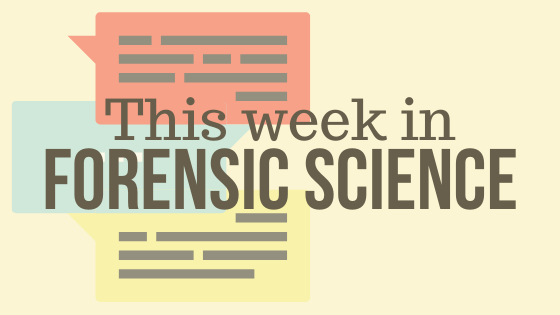No one has hours to scour the papers to keep up with the latest news, so we’ve curated the top news stories in the field of Forensic Science for this week. Here’s what you need to know to get out the door!
False Memories of Crime Appear Real When Retold to Others (Forensic – 4/9/2020)
People are no better than chance at identifying when someone else is recounting a false or real memory of a crime, according to a new UCL study.
The findings, published in Frontiers in Psychology, build on a previous study that was the first to successfully implant false memories of committing a crime – involving either assault or assault with a weapon that resulted in police contact.
Deep Dive: Scott Hopkins and the Invisible Semen Case of 1979 (Forensic – 4/10/2020)
The Superior Court of Pennsylvania granted inmate Scott Hopkins a new trial. On November 22, 2013, a Beaver County jury had convicted Hopkins of third-degree murder in the 1979 slaying of Janet Walsh. But the appellate court has now ruled that the prosecution’s “topographic distribution” theory of old semen stains “shall not be admissible” at the new trial.
Minnesota Forensic Lab Validates THC in Cannibis Test Method (Forensic – 4/10/2020)
- Forensic scientists at the Midwest Regional Forensic Laboratory, housed at the Anoka County Sheriff’s Office (M.N.), have validated a method to determine the THC quantity of a plant or liquid sample, allowing them to differentiate between hemp and marijuana.
Answering the Call: How NIST Helps Crime Labs Recover Evidence from Mobile Devices (NIST – 4/14/2020)
A few years after I started working at the National Institute of Standards and Technology (NIST), I joined the Computer Forensics Tool Testing (CFTT) program. Imagine how excited I was to learn that I was going to be so close to the kind of work I saw on TV! Soon after I started getting familiar with various tools in the lab, I was using CFTT’s methodology to test general computer forensics tools and mobile forensics tools. That’s the current focus of my research.
ASCLD Recognizes the Top Performing Forensic Labs in the World (Forensic – 4/14/2020)
Started in 2007 by an agreement between the West Virginia University and the National Institute of Justice, Project FORESIGHT is a business-guided self-evaluation of forensic science laboratories. Faculty from the WVU John Chambers College of Business and Economics analyze the data from forensic crime laboratories from around the world to identify trends across laboratories and performance of individual laboratories.
COVID-19 Creates New Dangers for Police, But Opportunity Awaits for Police Reform (Forensic – 4/15/2020)
James Nolan, professor of sociology at West Virginia University and former police officer, believes the COVID-19 pandemic presents a unique opportunity for police reform that could break the chains of outdated, and perhaps ineffective, approaches to policing.
Why Forensic Entomologists Say Crime-Scene Investigators Should Carry Cans of Tuna (Entomology Today – 4/15/2020)
Typically, laboratory staff have to store and thaw out frozen beef, pork, or chicken liver or buy it fresh, but now a team of researchers suggest feeding blow fly maggots could be as easy as opening a can or packet of tuna. It is cheap enough, easily stored and transported, and fills the nutritional need of the flies. The researchers’ findings are reported in a new paper, “Analysis of Alternative Food Sources for Rearing Entomological Evidence,” published last week in the Journal of Medical Entomology.
Last Responders: The Grim Job of Medical Examiners in the COVID-19 Pandemic (ABC News – 4/16/2020)
Just as the pandemic has seemingly affected every aspect of life in America, medical examiner offices are also adjusting. This is especially true as, Guzzetta said, everyone involved in solving a death — from investigators and police at the scene to body transporters, morgue technicians and medical examiners — may be unknowingly exposed to COVID-19.
The Bodies of People Who Died from COVID-19 May Still Be Contagious (Scientific American – 4/16/2020)
A forensic practitioner working in Bangkok, Thailand, most likely caught the virus from a deceased patient, according to the report, which was posted online April 11 as a preprint for the Journal of Forensic and Legal Medicine.
The forensic practitioner later died of the virus, marking the first case on record of a “COVID-19 infection and death among medical personnel in a forensic medicine unit,” the researchers wrote in the report.
WOULD YOU LIKE TO SEE MORE ARTICLES LIKE THIS? SUBSCRIBE TO THE ISHI BLOG BELOW!
SUBSCRIBE NOW!


